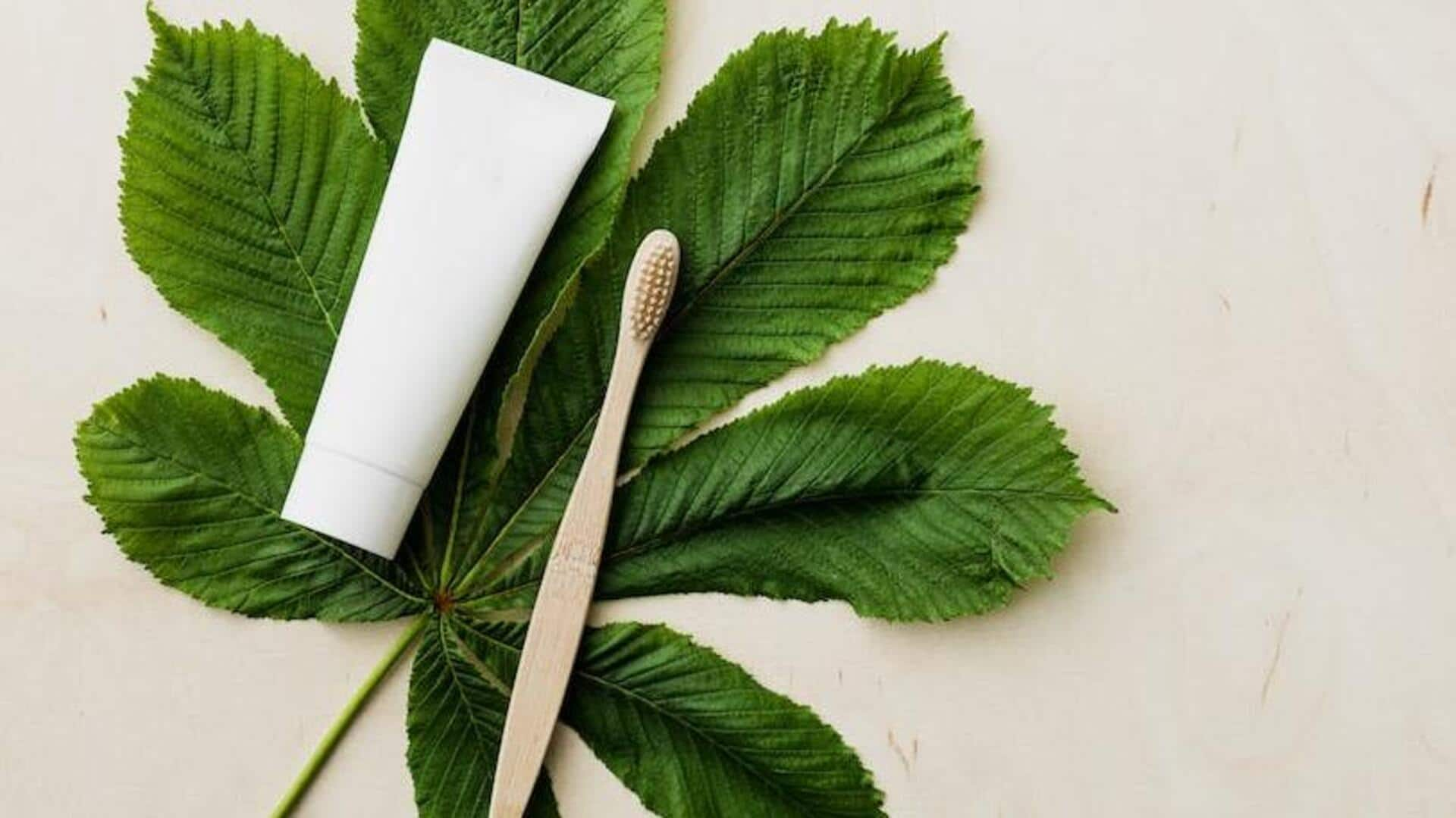
Sustainable oral care: Expert shares eco-friendly tips
What's the story
Oral hygiene routines are part of our daily life, but it's important to be mindful of the environmental impact of our choices. There are many eco-friendly practices and products that we can use to take care of our teeth and gums without harming the planet. Viren Khuller director of STIM Oral Care shares five tips for a sustainable oral hygiene routine.
Practice 1
Choose a wooden toothbrush
Khuller recommends choosing toothbrushes that are not harmful to the environment. Wood is a sustainable material that is biodegradable and compostable. Wooden toothbrushes are also durable and last just as long as plastic toothbrushes. "We should prefer neem wood toothbrushes as they are natural and sustainable. Neem wood is known for its antibacterial and anti-inflammatory properties," he says. Alternatively, you can use bamboo toothbrushes.
Practice 2
Wooden interdental
According to the expert, a wooden interdental featuring sustainable and biodegradable material, is a good way to clean your interdental spaces. "It is also effective at removing plaque and food particles from between your teeth, which can help to prevent cavities and gum disease," he says. Similarly, look for dental floss that comes in refillable containers to reduce plastic waste.
Practice 3
Use sustainable toothpaste
"Look for toothpaste that is made with natural ingredients and packaged in recyclable materials," Khuller says. More importantly, conserve water. Turn off the faucet while you brush your teeth and rinse your mouth. According to a study, this can save up to four gallons of water per brushing session. Upgrade your bathroom with water-efficient faucets to reduce water wastage during brushing.
Practice 4
Recycle your dental waste
Be mindful of dental waste. Choose brands that use minimal packaging or opt for bulk purchases to reduce excess packaging. "Check with your local recycling program to see what types of dental waste they accept. Many programs accept plastic toothbrushes and toothpaste tubes," says Khuller. Incorporating these eco-friendly practices not only reduces your environmental impact but also contributes to a healthier planet, he adds.